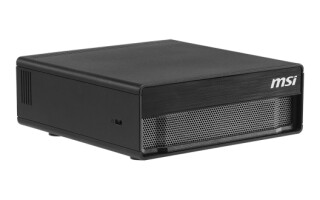Infineon Announced New MEMS Scanner For Eyeglasses and Head-Up Displays
August 10, 2021
News

The new MEMS scanner solution from Infineon Technologies AG features a MEMS mirror and MEMS driver for new product designs. Its miniature size and low power consumption enable augmented reality (AR) solutions for consumer applications such as wearables and for automotive head-up displays.
Infineon’s MEMS scanner chipset features a tilting mirror for a new generation of laser beam scanner (LBS) projectors. Compared to alternative system designs and competitive MEMS scanner solutions, Infineon’s new chipset is designed to stand out in terms of performance, size, energy consumption, and competitive system costs.
One challenge when developing AR-HUDs is integrating the system into the dashboard, due to space restrictions. Per the company, conventional HUD systems can be more than 30 liters in optical volume, yet still offer only a modest field of view. By contrast, laser beam scanners based on Infineon’s MEMS scanner chipsets enable HUD systems with minimum optical volume, so they can be integrated into small dashboards. Integration together with a competitive bill of material also bring AR-HUDs with a large field of view to small cars and compact classes.
The Infineon MEMS scanner chipset enables the design of an AR micro-projector which is light in weight and can be aesthetically integrated into all-day-wear eyeglasses and sports glasses. Thanks to the chipset’s low power consumption, small batteries can be integrated into the frame, allowing the glasses to be worn conveniently throughout the day without the need to frequently recharge the batteries.
To advance the development of AR smart glasses’ systems for the consumer market, Infineon is collaborating with TriLite Technologies GmbH, a Vienna-based start-up. While Infineon looks after the MEMS scanner chipset, TriLite is responsible for system integration and control algorithms that are designed to enhance the optical performance of the system. Both companies combine research in optical MEMS and mass manufacturing capabilities.
For more information, visit: www.infineon.com





